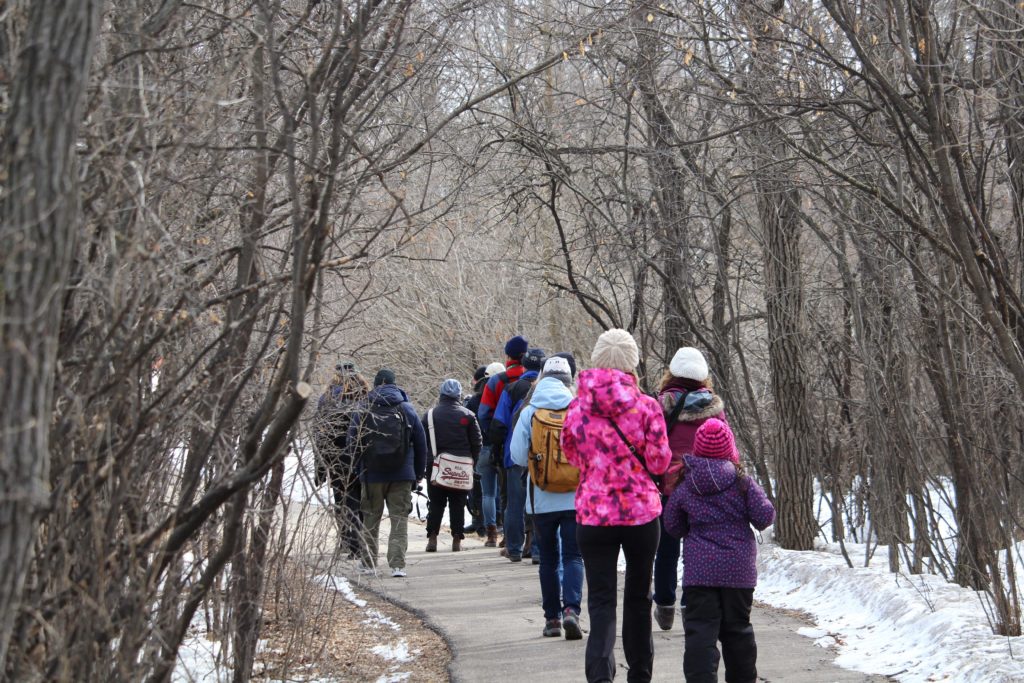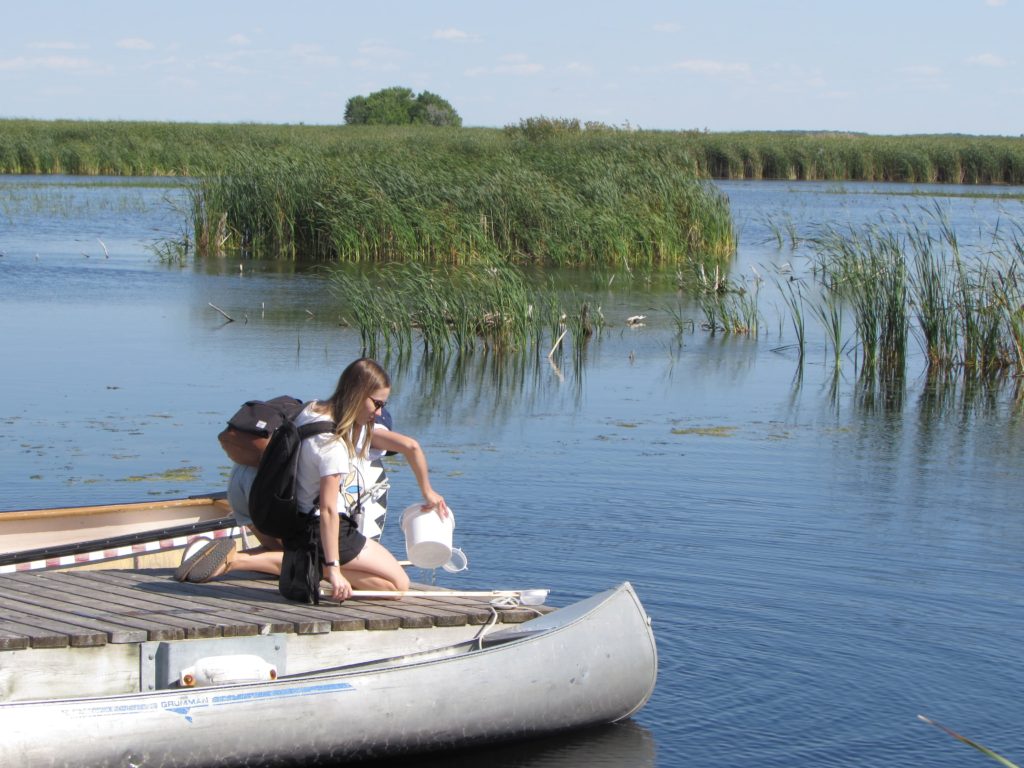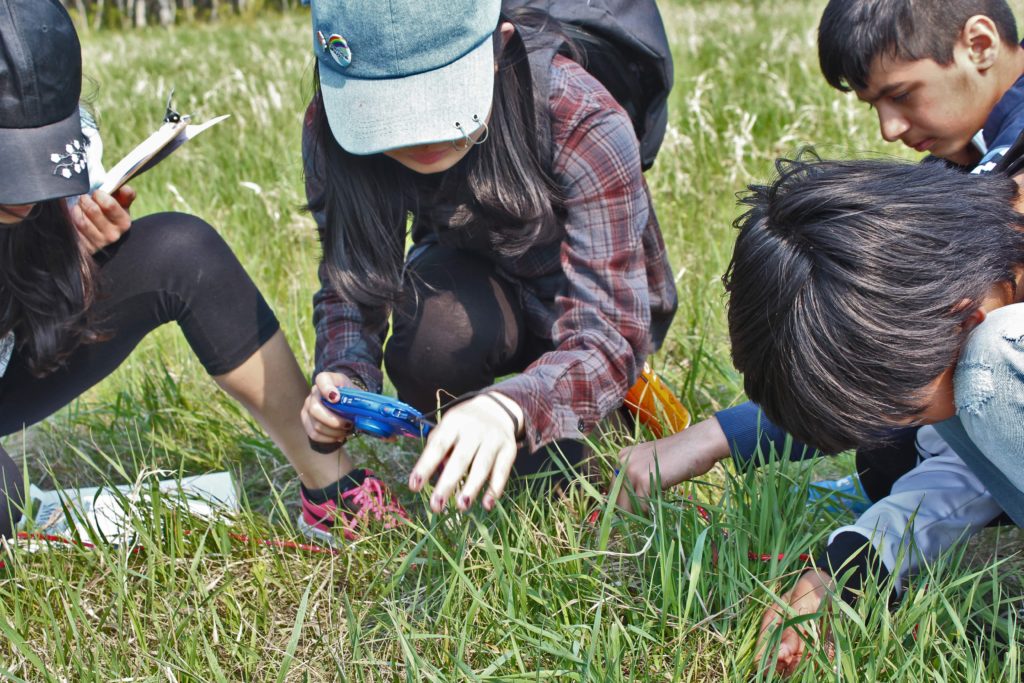
No matter your age, spending time in nature is good for you. It has been shown to:
□ Reduce stress
□ Improve immunity
□ Improve Vitamin D levels
□ Improve mental health
□ Improve concentration
□ Increase physical activity
□ Reduce risk of disease
□ Improve sleep
□ Increase happiness
□ Increase empathy
□ And much more!
There’s been no better time to spend time outdoors and experience these benefits than in the middle of a world-wide pandemic. The more positive experiences people have in nature, the more they will be inclined to spend time outdoors again. This leads to a deep and meaningful connection to nature. Not only is spending time in nature important during a pandemic, it is also paramount in the face of climate change. We need to turn the tables on a generation that has been more disconnected from nature than ever before, to recognize the intrinsic value of nature and the importance of protecting it.
This aligns very closely with CPAWS’ mission of promoting awareness and understanding of ecological principles and the inherent values of wilderness through education, appreciation and experience to rally support for protected areas.
Protecting nature is not possible without public understanding and support.
This is why CPAWS Manitoba is excited to launch its new Outdoor Learning Program, thanks to funding from TELUS and TD Friends of the Environment.
The purpose of this program is to increase access to outdoor learning and connect more Manitoban youth to nature and conservation efforts.
The program was developed for educators, families and CPAWS to introduce important environmental topics and apply learning in an outdoor setting.
Why is outdoor learning important?
Research shows that outdoor learning improves school performance, increases physical activity, improves health outcomes, supports child development, enhances social skills, builds resilience, creativity and problem-solving skills, and increases a student’s sense of community.

Not only is outdoor learning beneficial, it is a viable option for educators to engage with students in a meaningful and safe way during COVID-19. Moving class outside is not only better for social distancing and ventilation, but also introduces more public education devoted to learning on, from and with the land. Learning outdoors is a way to address social and emotional health amid COVID-19 restrictions. There has been a lot of pressure on educators and families to adapt to a drastically changing world, so CPAWS wants to be able to offer opportunities, supports and resources to make this a smoother transition. It’s an important time to expand outdoor education opportunities in Manitoba.
What does this program offer?
Online Portal: housed on CPAWS Manitoba’s website, there are both outdoor education and boreal forest resources. The resources include reading materials, videos, applied science and technology, four lesson plans (photovoice, geocaching for climate change, walk in a scientist’s shoes, and identifying biodiversity), social studies and science curriculum connections (for grades 7, 10 and 12), student takeaways, and more.
Presentations & Field Trips: CPAWS Manitoba will be using the contents of the program to facilitate programming to interested schools. This includes presentations at the school in a local green space (school yard, park, etc.) and/or a guided field trip in a designated location (i.e. Assiniboine Forest).
Facebook Community: CPAWS Manitoba has also created an Outdoor Learning Manitoba Facebook group to further engage Manitobans in nature-based learning. It is a space for passionate Manitobans to network, share resources, opportunities, and experiences to help one another establish deeper connections with nature and improve environmental sustainability across our province.
Who is coordinating this program?
This flexible program was developed so that the outdoor learning can be delivered by educators, parents and CPAWS staff and volunteers. The resources provided allow educators and to discover programming that meets their needs. This includes pre-prepared lesson plans and Manitoba curriculum connections for science and social studies.
The program was developed and will be coordinated by Heather McKie, who has had the opportunity to facilitate environmental education with more than five local organizations.

“I have had the pleasure of being involved in environmental education in Manitoba for almost a decade, so I’m excited to launch this program with CPAWS,” says Heather McKie, Outreach and Engagement Officer with CPAWS Manitoba.
“I was one of those kids who played with insects, kissed frogs and never left our neighbourhood park. I want to do my part to connect young people to nature so our next generation has the same positive experiences in nature that I had as a child.”
Educators play an important role in shaping future generations and creating awareness for important issues and initiatives. This is why CPAWS seeks to work alongside educators to help develop future environmental stewards who can help progress CPAWS’ mandate of connecting people to nature and conserving half of Manitoba’s wild spaces.
Why is CPAWS offering this program?
CPAWS Manitoba has been facilitating outdoor learning for many years through presentations, field trips, camping trips, and events for students and the general public. They chose to formalize and expand upon this work due to the urgent need presented by the COVID-19 pandemic and develop the Outdoor Learning Program.

“Changing the course of climate change requires reversing the trend of Nature Deficit Disorder in young people, which this program seeks to do,” says Ron Thiessen, Executive Director of CPAWS Manitoba.
Let’s get outside, connect, and learn together.
